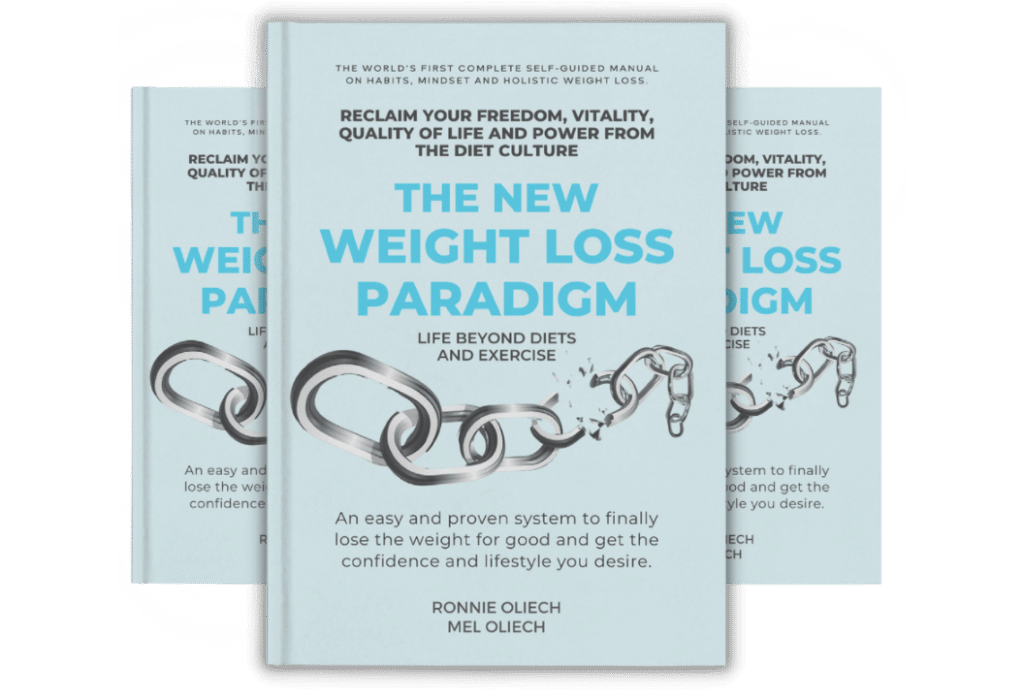Many people live with stress. Some are not even aware of it while the others claim they are used to it and wear it as a badge of honour.
But being used to stress doesn’t mean it’s good for us. It’s a bit like people acclimatising at Base Camp for a few weeks before climbing Mt Everest. While this time helps them adapt to the conditions, it doesn’t negate the impact on their body by being in these extreme conditions. This explains why some people’s organs still fail even after acclimatisation.
Put simply, just because we’re used to stress or conditioned to it, doesn’t mean it’s not harmful.
While stress isn’t all bad, living with high levels of stress or long-term (chronic) stress can wreak havoc on our health and wellbeing, as well as our weight.
Feeling overwhelmed, being time-poor, having difficulty sleeping and being unable to cope with mental or emotional pressure are all key signs that you’re stressed. However, there are other signs of stress that many people aren’t aware of.
Before we delve into them, it’s important to understand what stress is, why we get stressed and what happens to us when we experience stress.
What is stress?
Stress is the feeling of emotional or physical tension when we respond to pressure or a situation that we find threatening. When events occur that pose a threat (either real or perceived), our body reacts with the ‘fight or flight’ response.
This response releases hormones that prepare us to either fight the threat or run away from it. This fight or flight response is an automatic physiological reaction that ensured the survival of the human race. When faced with danger in their environments (e.g. a grizzly bear looking for someone to eat), our ancestors had two choices – run away from it, or stay and fight it.
Now, most of us don’t encounter grizzly bears anymore, but we do encounter situations that cause us to feel stressed. While some of these may involve a physical threat to our safety, most of the time, these threats are emotional.
Why do we get stressed?
Most people believe that the root of their stress is external circumstances such as a high-pressure job, a bad marriage or relationship, living with a chronic illness, or even just being too busy. However, the truth is that a stressful life, marriage or career is just a reflection of our habits and mindset. Our habits and mindset will also determine how we handle stressful situations. They will either compound the stress or reduce the stress.
Habits and mindsets that can cause us to feel stressed include:
- People pleasing
- Procrastinating
- Comparing yourself to others
- Not being your authentic self
- Trying to control everything
- Imposter syndrome
- Trying to be perfect
- Struggling to put yourself first
- Worrying about what other people think of you
- Dieting and having a poor relationship with food
- Lack of self-worth
- Not having meaning or purpose in your life
- Living with unresolved trauma.
To read more about these, simply click the links above.
Why chronic stress is a problem
Now let’s be clear, stress isn’t a bad thing, as it can propel us into action and save our life. Just imagine what would happen if you didn’t take action when a hungry grizzly bear was eyeing you off for lunch. Small amounts of stress can also provide us with enough pressure to complete work projects, study for an exam, or meet deadlines involved in selling and moving house, for example.
In these situations, stress isn’t harmful. Once you have completed your task, the stress response disappears and your cortisol levels return to normal. However, if you’re constant stress leads to the release of too much cortisol too often, and that is a problem because our body is not meant to be flooded with cortisol. A constant flow of cortisol:
- damages our glucose metabolism
- increases blood pressure
- increases inflammation in our body (which is associated with cancer, heart disease, arthritis, fatty liver disease, some bowel diseases, a lowered immune system, along with insulin resistance and diabetes, which impacts your weight)
- impairs our cognitive ability
- increases aggressiveness
- suppresses our sex drive
- impedes digestion
- lowers our immunity.
How stress impacts your weight
As you can see, chronic stress is a problem. While it has serious implications for our physical health, it also impacts our emotional and mental health as it has been linked to depression, anxiety, panic attacks and even suicide.
Too much stress is also a metabolic blocker. That means it impedes our ability to lose weight. To make things worse, people with high levels of stress are more likely to engage in behaviours that compromise their weight even further. These include emotional eating and binge eating and excessive drinking. Stress also leads to poor sleeping habits, which is another metabolic blocker.
You can read more about this in our blog How stress and weight gain are linked.
Signs you’re stressed and don’t know it
Many people live with stress and they’re not even aware of it. They assume that it’s normal because they have adapted to living with it, and don’t believe they can change it because they are not aware of how stress is a reflection of their habits and mindset. People don’t have stressful lives. They have habits and mindsets that reflect as stress in their life.
Unfortunately, adapting to stress doesn’t mean it’s not harmful. It’s a bit like the frog in the hot water analogy. If a frog is suddenly put in boiling water, it will jump straight out. However, if the frog is put in tepid water that is brought to a boil, it will not perceive the danger because it continues to adapt to the gradual increase in water temperature, and will be cooked to death. Adapting to stress is the same. By the time you notice it, it’s too late.
Signs of stress that almost no one knows about include:
- bad skin or constant outbreaks
- poor memory and concentration
- dehydration
- tense or sore muscles, especially around your neck and shoulders
- headaches and migraines
- excessive perspiration
- increased heart rate
- inability to make decisions (decision fatigue)
- jaw or tooth pain (due to clenching your jaw or grinding your teeth in your sleep)
- digestive problems including heartburn, diarrhoea or constipation
- changes in your appetite
- unintentional weight gain or weight loss
- binge eating or emotional eating
- increased use of tobacco, stimulants or other drugs
- increased consumption of alcohol
- feeling irritable or impatient
- losing your temper more often than usual
- involuntary muscle contractions
- lack of sex drive or sexual dysfunction
- irregular menstrual cycle
- infertility
- poor sleep patterns
- feeling sad or down
- experiencing less enjoyment in life
- increased risk-taking behaviours
- having difficulty doing daily tasks
- constant fatigue
- tense or toxic relationships
- hair loss
- becoming sick more often or not recovering from illness as quickly as usual.
How to reduce your stress
If you’re like most people, you probably believe that stress management techniques such as yoga, meditation, aromatherapy, massage or even deep breathing can relieve stress. While there is nothing wrong with incorporating some of these practices into your life, they won’t reduce your stress.
That’s because your stress is a reflection of your habits and mindset (remember the list you read earlier?) which cannot be solved by stress management techniques. The only way to reduce your stress is to address the reason you’re feeling stressed in the first place.
For example, if you have trouble putting yourself first, you’re likely to say ‘yes’ to everyone else but yourself. This means you’ll always be running short on time (stress). You’ll also find it hard to prioritise rest and sleep time so you feel fatigued and resentful (more stress). You won’t have time to prepare or eat healthy meals (guilt and stress) and will struggle to be consistent with your exercise routine (even more stress and guilt).
Unfortunately, no amount of meditation, aromatherapy or even exercise will help you reduce the stress you feel from not prioritising yourself. In fact, using exercise for stress reduction can often lead to more stress, injuries and burnout. The only way to reduce stress is to address the habits and mindset that causes the stress — that is the habits that stop you from putting yourself first (e.g. people-pleasing.) We explain this in detail in our blog Why stress management techniques won’t eliminate your stress and what you need to do instead.
At Imani Tribe, we understand that everyone experiences stress at some stage in their lives, but how they react to the stressor is dependent upon their habits. The better you get at mastering your habits, the better you’ll be able to deal with and reduce stress in your life.
If you’re sick of stress getting the better of you, reach out to us. We can help you develop better habits so you can find peace and calm, no matter what’s going on in your life.


















